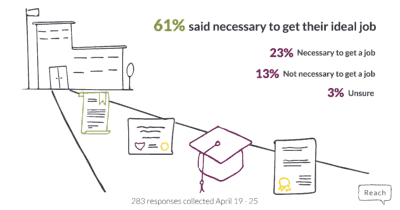When North Carolina passed a 2015 law requiring health insurance companies to cover specialized therapies for children with autism, families with affected children rejoiced at the news.
But more than two years after the mandate became law, some families are no closer to getting access to the intense treatments that can cost upwards of $40,000 a year.
“I haven’t met anybody who is actually affected by the law,” said Abegail McGrew, a Huntersville mother whose 5-year-old daughter was diagnosed two years ago with autism. “I don’t know what they wrote it for.”
McGrew and her husband spent $34,000 last year for daughter Olivia’s ABA therapy, after finding out in 2016 that the insurance the family receives through Mike McGrew’s out-of-state employer would not cover the therapies. Olivia works one-on-one with an experienced practitioner, going over behaviors that have overwhelmed her in the past to lessen her reactions over time.
Despite North Carolina passing a mandate for the therapies to be covered under private insurance plans, only a fraction of North Carolina health insurance plans cover the therapies.
Surprisingly, only about 10 to 15 percent of North Carolina’s health care market is subject to the ABA coverage mandate.
Nor can coverage be bought on the individual marketplace created by the Affordable Care Act, a scenario that has led many families of autistic children back to the choice of digging deep into their own pockets or forgoing treatment altogether.
“We’re fortunate enough that we’re able to do something, but it’s not bottomless,” said Mike McGrew, Olivia’s father. “The money runs out at some point.”
Sally Pidge, who owns Charlotte’s Achieve Therapy Services, said she regularly hears from parents upset that their employer-provided health insurance will not help pay ABA therapies.
Those families can’t buy an individual plan to help after the state legislature opted to exclude plans available through the Affordable Care Act marketplace from the insurance mandate.
“If there was one on the marketplace, I would send them 1,000 families,” Pidge said, about the demand for health care plans that cover ABA therapies.
How ABA works
ABA therapies are specialized and time-consuming and may cost as much as $40,000 a year. It requires a board-certified behavioral analyst or certified technician to spend as many as 40 hours weekly of one-on-one time with a child. The therapist uses behavioral techniques to identify issues and slowly adjust the autistic child’s intense reactions to everyday situations. Ideally, the children can learn to handle situations or scenarios that were previously overwhelming.
Families who have used the therapies say their children have made significant progress, from an older child being able to use the bathroom on their own to interacting more deeply with those around them.
“In some kids, if we can get them young enough, we can get them into typical kindergarten,” Pidge said, a significant milestone that can set a child up for years of continued success.
The McGrews have seen Olivia, 5, make big strides since she began ABA therapy in 2016, on top of speech and occupational therapy sessions she takes. Olivia, who does not speak, can now communicate her needs through a combination of sign language and pictures. Tantrums and frustrations have also lessened, and both parents see less “stimming,” a behavior common in autistic children where sounds, actions, movements or other stimuli are repeated as a way to self-soothe. Olivia also has begun imitating sounds, a breakthrough that brought tears to her mother’s eyes.


Now, her ABA therapist is working with her to turn and look when her name is called, a seemingly small accomplishment for those with neurotypical children but a considerable achievement for an autistic child like Olivia who also has developmental delays.
The McGrews wish their health insurance would help pay for the ABA therapies. They can only afford to send Olivia to an average of 10 to 15 hours of ABA therapy a week.
They wonder what more treatments would do for Olivia.
“If money wasn’t an issue, I would give it a go and see what 30 to 40 hours [of weekly ABA therapy] would do,” Abegail McGrew said.
Exceptions to the mandate
Like so much with health care, figuring out if a health care plan includes ABA therapies is complicated.
The mandate, as passed, would require insurance plans regulated in North Carolina to provide up to $40,000 annually of adaptive behavior therapies for those under 18 and on the autism spectrum. Co-pays and deductibles would still apply, so those with a $5,000 deductible or co-pays for individual sessions would still be on the hook for all those costs.
The plans that fall under the ABA mandate include companies with 50 or more employees, and who have health plans that operate only in the state of North Carolina, said Jennifer Mahan, public policy director for the Autism Society of North Carolina, one of the advocacy groups that pushed for the 2015 law.
But those make up only about 10 to 15 percent of the health care plans operating in the state, with large employers often utilizing different types of health care plans, Mahan said.
The state “doesn’t control a lot of the health plans out there, the federal government does,” she said.
Not included in the mandate are plans adopted by out-of-state companies or those with fewer than 50 employees. Also exempted are self-funded plans, where a company pays all the health care costs of their employees, while the insurance company only administers the plan as instructed. Self-funded plans are preferred by many employers because they have more control over what is offered, and in the long run, it can cost less or provide better coverage for employees.
Companies can decide to include coverage of ABA therapies for their employees, as large employers like Walmart, Bank of America, Home Depot and SAS have done. State employees can get ABA services for their children on the autism spectrum after the State Health Plan began covering it in 2015.
Lorri Unumb, a vice president of state government affairs for Autism Speaks, suggests families without coverage speak up.
“Go to your company’s HR and ask to add coverage,” Unumb said.
Many times companies will add it to try to remain competitive and keep talented staff who have children in need of services.
Blocked from the open marketplace
When it passed the 2015 law, the North Carolina legislature also opted to exclude individual plans offered on the health care exchange, known colloquially as Obamacare.
There were concerns about a federal provision that says states who demand services above and beyond the basic offerings would have to pay for the increased cost, Unumb said.
But none of the 20-plus other states that have included adaptive behavior therapies for those with autism have faced those extra charges, Unumb said, in part because of evolving language that has increasingly classified ABA therapies as an essential part of treatment for those on the autism spectrum.
She suspects North Carolina, if the legislature were to expand the mandate to ACA plans, would not end up having to pay insurance companies to include the coverage given that the coverage is mandated in other states.
“It’s not really that much of a threat,” she said, about the odds of federal regulators coming down on North Carolina for beefing up ACA plans with coverage for the specialized autism therapies.
Premium costs do go up when ABA coverage is added.
Private health plans in Missouri went up by $3.12 a year for each member in 2014. In South Carolina, including ABA coverage in the state health plan cost $5.64 per member in 2015, according to data provided by Autism Speaks.
Jayashri Nandargi found out about North Carolina’s ABA exclusion the hard way, when she, her husband and twin toddler sons moved to Winston-Salem last year.
Nandargi purchased an individual ACA health care plan for her 2-year-old son Aarush, who has been diagnosed with autism, after an insurance broker erroneously told her ABA therapies would be covered.
She has since found out that the health care plan excludes the therapies and has not been able to enroll Aarush in the behavioral therapies she believes would help him communicate and overcome some sensory issues.
He receives an hour of speech and occupational therapy a week but she wishes ABA therapies were available to him.
“I don’t know what to do,” Nandargi said. “Out-of-pocket is very, very expensive.”
Getting access
The law’s shortcomings were known when it was being debated, Mahan said, and advocacy groups have tried to let families know that the mandate is far from universal in North Carolina.
But in a field as complicated as health care, not everyone has gotten the message.
Families such as the McGrews say they’re glad the 2015 law has helped some, but wish it went further.
“They need to revise the mandate,” Abegail McGrew said. “There’s so many companies within North Carolina that don’t operate within those parameters.”
But could the state legislature fix this scenario for families unable to get coverage? Yes and no.
The legislature could opt to expand ABA therapies to the open marketplace, a move that Unumb said would then at least allow families to buy plans on their own with that coverage.
State Sen. Joyce Krawiec, a Kernersville Republican, is eyeing a fix for this.
Even as a primary sponsor of the 2015 legislation, Krawiec said she was unaware that families were blocked from buying plans that offer ABA coverage on the open marketplace.
“The objection was to make autism insurance coverage available in all North Carolina families,” Krawiec wrote in a statement to N.C. Health News. “Apparently this is not happening.”
But the state does not have the authority to dictate coverage for those health care plans that are self-supported or insurance policies based out of other states.
Any changes there would have to happen at the federal level, and given the current discord in Washington over health care, that is unlikely to happen, Unumb said.
Until then, families will need to make the decision about whether to pay for ABA themselves or begin looking for jobs that offer coverage.
Nandargi, the Winston-Salem mother, is hoping her husband’s employer, BB&T, opts to add ABA coverage to the health insurance plan next year. If not, the inability to get ABA therapies may mean leaving the state and returning to Ohio, where they lived previously.
“Here, I’m struggling,” she said.







